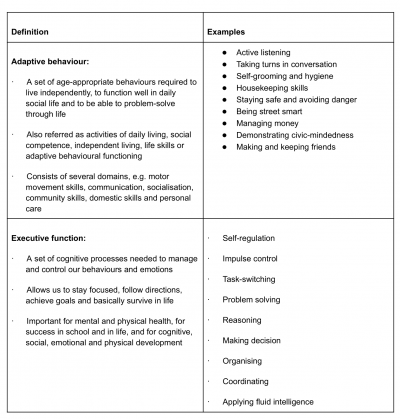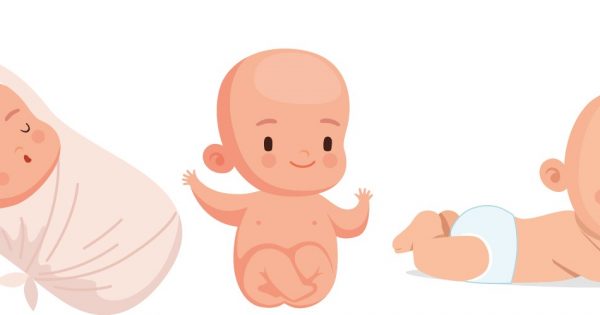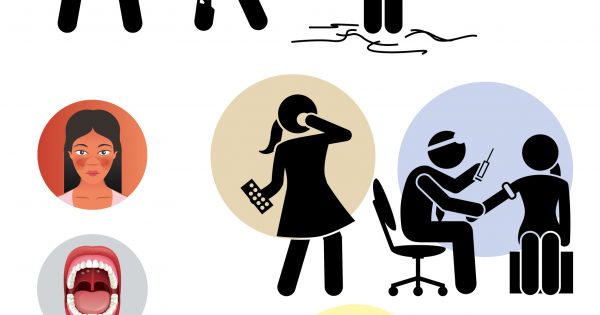Adaptive behaviour and executive function are interrelated and important for children to learn as they grow up so that they can function effectively and be independent.
When we talk about life skills, what comes to mind? In the field of psychology and child development, “adaptive behaviour” and “executive function” are two terms that can be defined as essential life skills, especially for children who are still developing.
Adaptive behaviour & executive function

Skills for life
Both adaptive behaviour skills and executive functions are essential in life and they are interconnected. Executive functions facilitate adaptive behaviour skills, which in turn allow us to function as an individual in society. Having both skills essentially means that an individual is resourceful enough to solve any problems on his own or to seek help when necessary.
No baby is born with these skills, but every child is equipped with the capability to learn them. It is the parents’ role to ensure their child learns and develops these skills as they grow. With adequate adaptive behaviour skills and executive function, children become more empowered with self-confidence and a sense of self-efficacy towards independence. As children demonstrate competency in being independent, parents are more likely to have confidence in their children and feel less burdened in parenting them.
Consequences of dependency in children who lack these skills are increased likelihood of stress and frustrations on the part of the parents, siblings, friends and teachers of these children.
Get help early!
Children with learning or developmental issues, e.g. attention deficit hyperactivity disorder (ADHD) or autism spectrum disorder may have difficulties acquiring and retaining some of these life skills. Thus, it’s important for parents to detect these issues and seek help early, so that appropriate measures can be taken to help the child learn these skills. With the right support, they can be independent too!
Parents’ roles
Here are some ways for parents to support their children to develop these life skills according to their age and ensure that they become independent problem-solvers.
- Monitor milestones: Be aware and keep track of age-appropriate developmental milestones in your child. If there are any possible issues, take early steps to address and rectify the problems.
- Practise makes perfect: These skills are trainable and can be improved as children grow. For example, your child may have trouble making friends during her first year in preschool, but as she builds her confidence, she will be better.
- Don’t be helicopter parents: Don’t do everything for them and avoid being overprotective! Let your child make mistakes and learn to problem-solve towards independence. She wouldn’t be able to learn new skills if everything is done for her, e.g. tying shoelaces, cleaning her room, etc.
- Focus on effective communication and social skills: These skills are the most basic skills necessary for your child to master as they facilitate the learning of other skills. To teach your child certain skills, you first need to be able to effectively communicate with your child. Their survival in the community would also depend on their socialisation skills.
Life skills, as the name suggests, are skills necessary to thrive in life. However, they are not similar to certain developmental milestones that are innate to every human. These life skills need to be learned, whether directly or indirectly. Parents play a major role in making sure that their child develops essential life skills to grow up into a fully-functional adult. The more skills we have, the more adaptive we become, and the more likely we will survive!







Comments